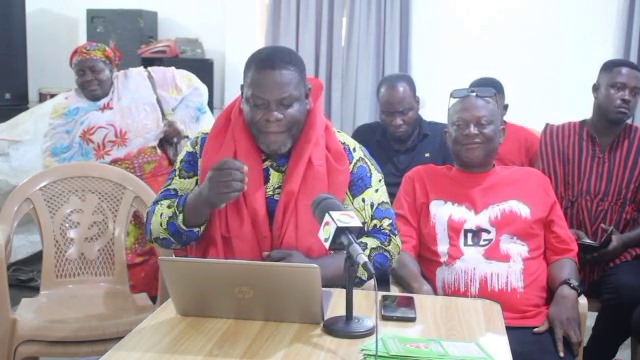The National Cross Border Women Traders Association (NCBWTA) has issued a strong warning to government over what it describes as growing intimidation and unfair enforcement tactics by some officers of the Customs Division of the Ghana Revenue Authority (GRA).
According to the association, these actions—particularly the alleged misuse of Post-Clearance Audit (PCA) procedures—pose a serious threat to trade, government revenue, and the livelihoods of thousands of cross-border women traders.
In a statement released on 25 November 2025, the association expressed concern that some Customs officers are using PCA protocols as punitive tools, targeting traders who have already completed all legal clearance processes at the border.
The association noted that many traders are being stopped, re-examined, and subjected to what they describe as “unwarranted and aggressive audits” while transporting goods to market centres.
Between October and November 2025, more than 100 trucks belonging to cross-border traders were reportedly re-examined after border clearance. NCBWTA argues that such practices undermine the credibility of qualified border officers, increase operational costs for traders, and disrupt trade flows along the ECOWAS corridor.
The association warns that these actions create fear and suspicion in a sector that plays a critical role in food security, regional commerce, and poverty reduction. It cautions that driving legitimate traders into informal channels would ultimately reduce revenue, destabilize border activity, and contribute to higher market prices and inflation.
Key Concerns and Call for Action
NCBWTA is calling on the Ministry of Trade and Industry, Ministry of Finance, and trade development partners to intervene immediately. Their requests include:
- An immediate halt to unauthorized task forces and politically driven enforcement activities that harass traders after official Customs procedures have been completed.
- An emergency meeting within one week with the association to address the issues and develop practical, transparent trade facilitation solutions.
- Strict adherence to ECOWAS Trade Liberalisation Scheme (ETLS) rules for ETLS-approved goods, without intimidation, misclassification, or undue valuation changes.
- Strengthening genuine trade facilitation efforts that reduce corruption risks, support small businesses, and protect the professional integrity of Customs officers.
The association also raised concerns about potentially politically motivated targeting of certain traders, noting that many women operate on extremely narrow profit margins and are highly vulnerable to intimidation and arbitrary enforcement.
Appeal to the President
NCBWTA extended an urgent appeal to President John Dramani Mahama to intervene and protect the rights and livelihoods of cross-border women traders, who contribute significantly to both Ghana’s economy and regional trade integration.
They emphasized that cross-border women traders actively export Made-in-Ghana goods across West Africa, boosting Ghana’s visibility and competitiveness. Under ECOWAS law, these traders also have the right to import Made-in-ECOWAS goods without fear or harassment.
While expressing willingness to support government’s 2026 revenue target of GH₵216 billion in non-oil tax revenue, the association warned that poorly coordinated strategies along trade corridors could backfire—undermining compliance, pushing traders underground, and increasing the cost of goods and services for consumers.
Working Towards Sustainable Trade
NCBWTA highlighted its ongoing efforts to formalize and strengthen cross-border trade through trader identification systems, training programs, partnerships with institutions such as the FDA, Chamber of Commerce, and Ghana Export Promotion Authority, and collaborations with development partners like GIZ and Trademark Africa.
Despite these efforts, the association insists it will not allow actions that undermine Ghana’s trading ecosystem, especially during the peak trading season when livelihoods are most at risk.
Conclusion
The association warned that failure to resolve the current situation could erode trust between traders and government, disrupt border operations, and destabilize thousands of small businesses.
It called on the Ministries of Trade and Industry, Finance, and Foreign Affairs to take swift and decisive action to restore confidence and uphold fair and professional Customs procedures along the Abidjan–Lagos corridor.
“We stand here not to fight but to demand fairness, transparency, and dialogue,” the statement concluded. “Cross-border women traders are not criminals—we are contributors to national development and regional economic growth.”
READ ALSO:
Family of late Daddy Lumba rejects announced funeral date
Kissi Agyebeng’s removal: Shamima Muslim receives petition
GHS alerts districts ahead of Zipline Sefwi Wiawso Centre suspension


